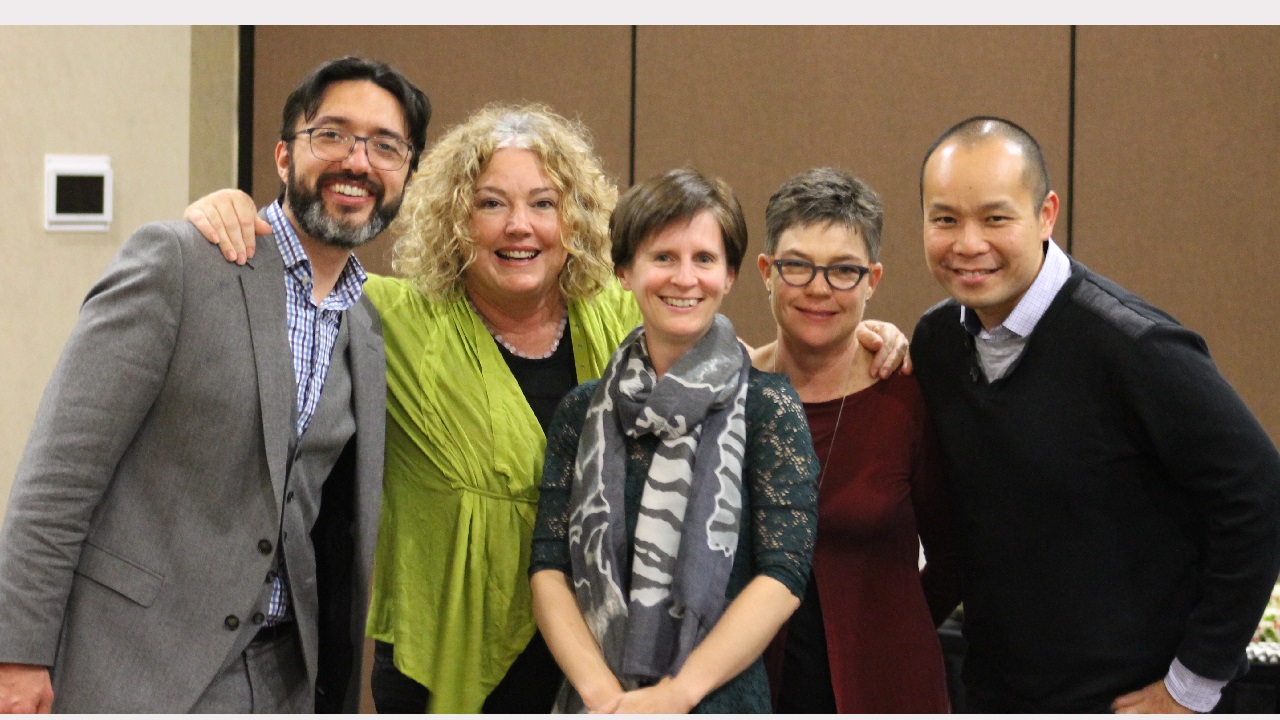Checklist provides another inspired step forward for palliative care in residential aged care
Checklist provides another inspired step forward for palliative care in residential aged care
Tuesday, September 26, 2017
A simple, easy-to-use checklist for palliative care needs rounds can help improve the quality of life and death for nursing home residents internationally according to an Australian study published in the BMJ.
The evidence-based checklist was based on data, descriptions and interviews which captured what occurred during monthly palliative care needs rounds. The rounds, led by a palliative care nurse practitioner, were conducted in four residential aged care facilities in Canberra during a pilot study which showed the benefits of taking a proactive approach to providing specialist palliative care within aged care facilities.
The pilot, previously published in the BMJ, used needs rounds to predict residents’ symptoms and prepare for them in advance, rather than reacting only after they had occurred. The needs rounds were attended by care managers, registered nurses and carers who identified and prioritised elderly residents’ most at risk for unplanned dying with inadequately controlled symptoms.
The checklist captures what occurred during these successful needs rounds, so it is easy to replicate them elsewhere, according to Clare Holland House palliative care nurse practitioner, Nikki Johnston.
“A specialist palliative care team member anywhere in Australia can pick it up and use it,” says Ms Johnston, one of the five team members behind the research.
“I’d like to see palliative care needs rounds facilitated in rural and remote Australia, using telehealth; you could have one specialist palliative care clinician sitting in the city covering a big area, using the checklist.
“This proactive way of working has multiple benefits, for residents, residential aged care staff and specialist palliative care. It means residents are identified when they’re at risk of dying, they have plans put in place, families are informed and know what is happening so they feel valued, and there are less complaints.
“People are dying where they want to die and they are dying with their symptoms managed more effectively. Staff are feeling better about their jobs because their capacity to do this work has increased and specialist palliative care is only getting referrals for people with specialist palliative care needs.”
The checklist starts with triggers to determine whether a patient needs to be discussed at needs rounds, which include:
- You would not be surprised if the resident died in the next six months
- Physical or cognitive decline or exacerbation of symptoms in the last month
- No plans in place for last six months of life/ no advance care plan
- Conflict within the family around treatment and care options
- Transferred to our facility for end-of-life care
The checklist goes on to pose 4-5 questions according to whether the resident is a new referral or being reviewed, followed by a list of six proposed actions to consider.
The published paper says that adopting the checklist internationally could help revolutionise care.
“The impacts include cost-effectiveness for the acute sector, improved staff skills and knowledge for the care team and improved resident outcomes including [an increased…] possibility for people to die in their preferred place.”
The BMJ published staff reflections on benefits that checklist might have for future users. One manager commented “I don’t think we’ve had a bad death since we started the needs rounds”, while a registered nurse said, “I think the [referral] criteria helps us because it makes you start thinking before the needs rounds… it unified us all working together on the same thing”.
The pilot study which provided the basis for the checklist has led to the larger INSPIRED trial (integrating specialist palliative care into residential care for older people) being undertaken across 12 sites in Canberra. INSPIRED is being run by Calvary Centre for Palliative Care Research and Calvary Public Hospital Bruce. It was funded by ACT Health. The study’s other co-authors are geriatrician and palliative care specialist Dr Michael Chapman, clinical nurse consultant in palliative care Clare Lovell, professor of palliative care Dr Liz Forbat and economist Wai-Man Liu.
Access the checklist here.
